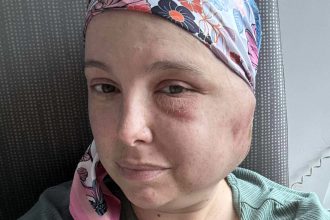A student is suspected to have been killed by bedbug chemicals, as a family of four died after a hotel fumigation.
Marlene Petersen fell ill at the rental flat a year ago.
She lived there with two other Erasmus students.
READ MORE: Mum arrested for ‘ordering own daughter’s murder over inheritance row’
The investigation into her death first focused on poisoning from the sushi she had eaten for dinner, or from the flat’s tap water.
But it has now been revealed that her death may have been caused by bedbug pesticide poisoning.
Marlene, 23, and her flatmates woke up at their flat in Istanbul, Turkey, on 2 November last year with severe vomiting and nausea.

Her flatmates went to the hospital, while Marlene – from Hamburg, Germany – chose to stay behind.
After being treated and discharged, they returned to the flat and found her in a dramatically worse condition.
They called an ambulance. Doctors detected an “infection in her blood”, but despite their efforts, she died shortly afterwards, as reported by Need To Know.
During the investigation, detectives discovered that bedbug fumigation had been carried out in the building on 30 October last year.
It was after an infestation was found on the floor below the students.
Investigators say the pesticide “turned into gas and spread throughout the building”, almost certainly causing Marlene’s death.
It was not initially suspected because the chemical used breaks down into tiny molecules in the body and can disappear without leaving traces in autopsy tissue samples.
It follows the deaths of a family of four from Germany, who fell ill at the Istanbul hotel where they were staying on holiday.
Investigators first suspected food poisoning, but now believe Servet, Çiğdem, Kadir Muhammet, and Masal Böcek – aged 36, 27, six, and three – were poisoned by aluminium phosphide.

Fumigation was carried out at their hotel on 11 November, while the family were out for dinner. They returned two to three hours later.
Fumigation was only suspected after two other tourists at the same hotel fell ill and were taken to the hospital.
When aluminium phosphide comes into contact with moisture, it releases phosphine gas – colourless, often odourless, and extremely toxic.
The risk is particularly high in enclosed, poorly ventilated spaces.
When inhaled, phosphine disrupts cellular energy production; targets the heart, lungs, liver and kidneys; and causes severe oxidative stress and multi-organ failure.
There is no antidote that reverses its effects.
Only supportive treatment can be given, and survival depends largely on the body’s resilience.
READ MORE: Bride-to-be, 26, killed on pedestrian crossing while walking to driving lesson










